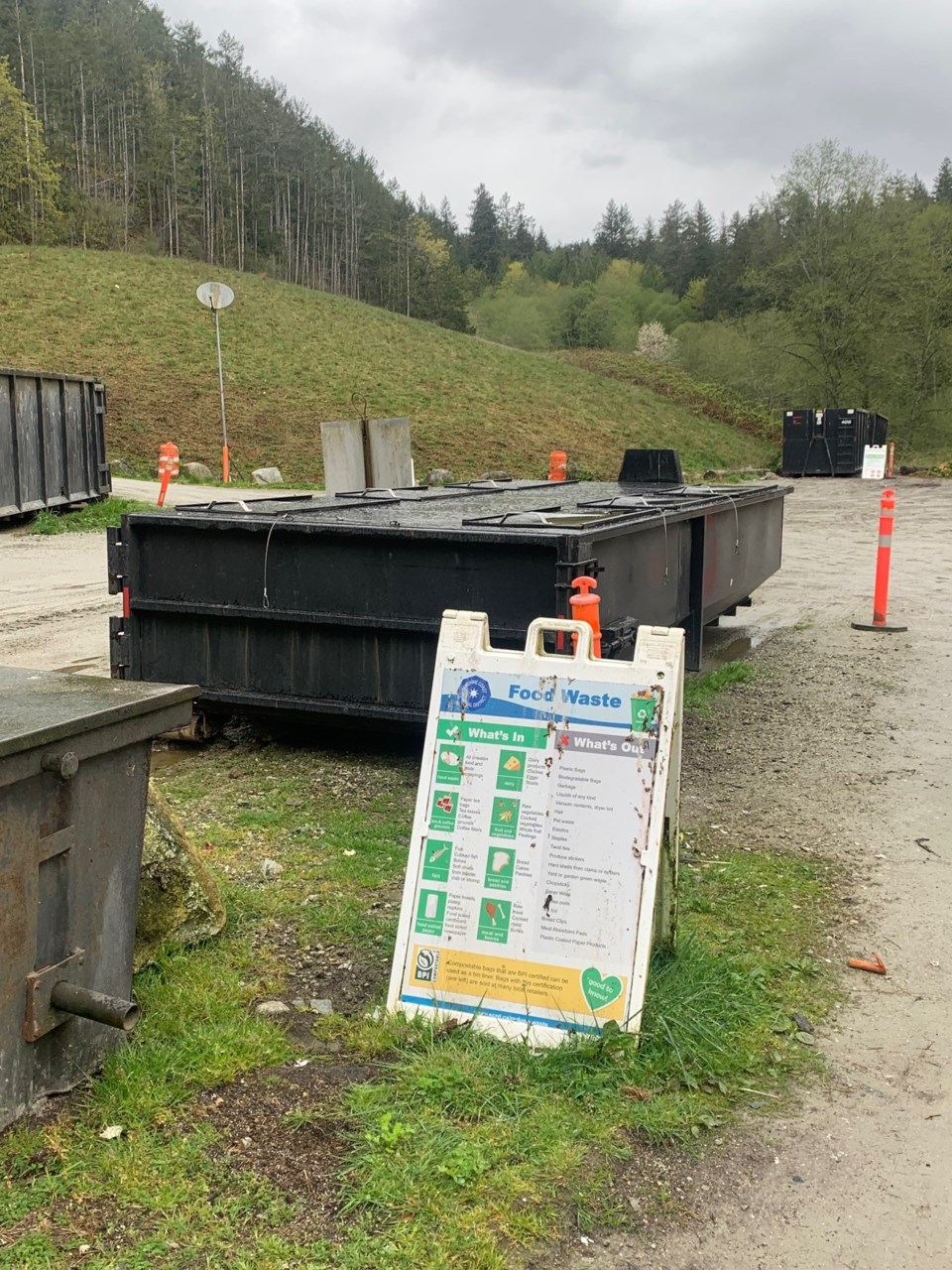For a year and a half, Pender Harbour and Egmont residents have had the option to use centralized food waste recycling at the regional waste transfer station off Garden Bay Road. At an April 25 Sunshine Coast Regional District committee meeting, staff reported that the pilot project, approved to operate until October, isn’t getting the use that was anticipated.
The Area A food waste drop-off pilot was to be funded equally from reserves and tipping fees. In its first year, the pilot cost $34,323 to operate. Fees to use the service are a minimum of $5 per load under 30kg and $150 per tonne for larger deposits, which are limited to 45kg. Year one deposits totalled 52.8 tonnes and generated $7,920 in fees, less than half what was needed to pay an equal share of the program costs.
To keep the food waste deposit bins in service, changes to tipping fees and the possibility of allowing area businesses to use the program has been suggested by staff. A decision from the board regarding contracting for continuation of the service, in the current or an amended form, is yet to be made.
The report on the meeting agenda stated “although the service is for users in Electoral Area A, reducing food waste in the Sechelt Landfill is of benefit to all residents on the Coast." Since, October 2022, food-related waste is a prohibited material in garbage for disposal at the SCRD’s landfill.
“While some [Area A] residents may choose to transport their food waste to Sechelt, compost at home, or pay for private collection, others may attempt to dispose of their food waste as municipal solid waste, which is landfilled at the Sechelt Landfill. If all current users of the food waste drop-off service were to dispose of their food waste as garbage, this would result in a loss of approximately 0.8 days of landfill life per year,” the report noted.
Reducing barriers to use
The committee discussed how to address possible barriers to participation in the program. Gibsons area director [a former Area A resident] Silas White commented on the large geographic size of the area. He said the transfer station, although somewhat centrally located, is a long distance away from where many residents live. That he noted may deter some from using it.
Offering items such as compostable collection bags at the transfer station as a means of making the service more convenient was suggested by Area D (Roberts Creek) director Kelly Backs. While he resides in an area that has curbside regional food waste collection, he said the cost and lack of availability of such bags at local stores made his adjustment to recycling of food waste products more complicated. He explained that his family has since been able to organize a “home system” that has made home food waste compost storage and collection a simpler routine.
Area A is not part of the regional curbside solid waste collection programs that are offered in other areas of the Coast. There is a private curbside garbage collection service operating in part of the area but that company does not offer recycling pick up services.



